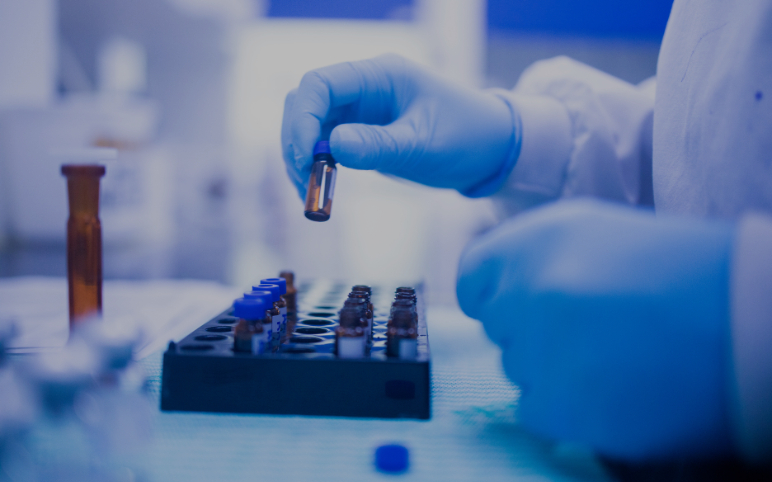Beyfortus: A New Respiratory Syncytial Virus (RSV) Drug for Toddlers
Jul 21, 2023
Sanofi’s immunization strategy is taking shape, owing to an authorization that could drive the company and its partner AstraZeneca to the forefront of the respiratory syncytial virus (RSV) treatment battle. The FDA approved Sanofi and AstraZeneca’s monoclonal antibody Beyfortus, also known as nirsevimab, as a preventative for RSV lower respiratory tract disease in newborns on June 17. The approval includes newborns and infants born during or about to enter their first RSV season, as well as young children up to 24 months old who are still at risk of RSV during their second disease season.
The clearance places Sanofi and AstraZeneca in the RSV treatment market that has lately been saturated by Pfizer and GSK, which also received back-to-back FDA approvals for adult RSV vaccines this summer. In Pfizer’s case, the company is also developing a vaccination to protect babies through maternal immunization. The FDA is scheduled to make a decision on the application next month.
The RSV drug, which was unanimously recommended for clearance by an FDA advisory group last month, is a single-dose monoclonal antibody designed to protect neonates and infants against RSV for the duration of the RSV season. It is also one of only two RSV medicines approved in the United States for high-risk children, the other being Synagis (palivizumab), which was approved in 1998 and is administered monthly.
Downloads
Click Here To Get the Article in PDF
Recent Articles
- FDA Approves Luye’s Rykindo; EU Approves AstraZeneca’s Tezspire; Oramed Announces Trial Results o...
- Novel treatment approval promises a better future for Sickle cell disease patients
- Navigating the Loss of Exclusivity: Big Pharma’s New Playbook
- Business Cocktail
- Dupixent Significantly Reduced COPD Exacerbations; Sosei Heptares to Regain Ownership of GSK43814...
Beyfortus is a single-dose long-acting antibody used in the United States to help prevent RSV lower respiratory tract disease in all newborns throughout their first RSV season. Beyfortus is also advised for children aged 12 to 24 months who are still at risk of severe RSV disease during their second RSV season. Beyfortus, administered directly to neonates and babies as a single dosage, provides immediate protection via an antibody to help prevent LRTD caused by RSV without requiring immune system activation.
Sanofi and AstraZeneca began working together on drug development in 2017. The partnership divides tasks, with AstraZeneca in charge of development and production and Sanofi in charge of sales and revenue recording. However, the companies split profits and costs, with the exception of the United States, where Sanofi keeps the entire haul as part of its business operating income.

RSV is the leading cause of hospitalization for infants under the age of one in the United States, with a yearly rate that is 16 times that of influenza. An estimated 590,000 RSV disease cases in infants under one year old require medical attention each year, including physician’s office, urgent care, emergency room, and hospitalizations.
According to the assessment done by DelveInsight on the latest published “Respiratory Syncytial Virus Epidemiology Report,” it is estimated to affect approximately 5 million cases this year in the United States and 2.5 million cases in the EU4 countries and the United Kingdom. As per the analysis, the highest RSV incident cases were comprised of mild cases (~70%), in children, whereas, in adults, the highest RSV incident cases were found to be moderate (~64%), in 2022 in the US.
The FDA decision follows the FDA Antimicrobial Drugs Advisory Committee’s favorable recommendation and is based on the lengthy Beyfortus clinical research program, which includes three important late-stage clinical trials. A single dose of Beyfortus revealed excellent and persistent efficacy against RSV LRTD across all clinical endpoints for five months, a typical RSV season. Data from Phase II and III trials verified the RSV drug’s safety and efficacy. According to the findings of the MEDLEY trial, the drug showed a similar safety profile to palivizumab, the other FDA-approved monoclonal antibody therapy for RSV treatment. Adverse responses were infrequent, with the majority being mild-to-moderate rashes and minor injection site reactions.
“Today’s approval marks an unprecedented moment for infant health protection in the United States, following an RSV season that took a record toll on infants, their families, and the U.S. healthcare system. Beyfortus is the only monoclonal antibody licensed for passive immunization to protect all newborns during their first RSV season. I am proud that, by prioritizing this potentially game-changing technology, we are now on the verge of bringing Beyfortus to American families.”
– Thomas Triomphe, Executive Vice President, Vaccines, Sanofi
“Beyfortus represents a paradigm shift in preventing serious respiratory disease caused by RSV across a large infant population in the United States. Beyfortus’ research highlights AstraZeneca’s continuous leadership in meeting the needs of the most disadvantaged groups and decreasing the burden on healthcare systems.”
– Iskra Reic, Executive Vice President, Vaccines and Immune Therapies, AstraZeneca
The FDA’s approval of Beyfortus, developed jointly by Sanofi and AstraZeneca, follows previous regulatory approvals around the world. The monoclonal antibody for RSV treatment was approved by the European Union and the United Kingdom in late 2022, while Canada approved it in April 2023. Beyfortus has also been given RSV treatment market access in all three nations. It is also currently undergoing regulatory approvals in China and Japan, among other countries. The companies intend to make Beyfortus available in the United States ahead of the 2023–2024 RSV season.
FAQs
The respiratory syncytial virus (RSV) is a highly contagious respiratory virus. It belongs to the genus Pneumovirus, which is part of the family Paramyxoviridae. Virus particles are enveloped and pleomorphic, forming irregular spherical particles with diameters of 100-350 nm and long filamentous fibers with diameters of 60-200 nm and lengths of 10 mm.
Signs and symptoms of respiratory syncytial virus infection typically appear 46 days after virus exposure. RSV typically causes mild cold-like symptoms in adults and older children. These respiratory syncytial virus symptoms may include a stuffy or runny nose, a dry cough, a low-grade fever, sore throat, sneezing, and a headache.
RSV testing is not always necessary. Several types of laboratory tests are used for respiratory syncytial virus diagnosis if required. The rapid diagnostic test is the most commonly used.
The mainstay respiratory syncytial virus treatment for bronchiolitis is supportive care. Most infants may be treated at home, but those who appear unwell, are dehydrated, have poor feeding or apnea, suffer respiratory distress, or require supplemental oxygen should be hospitalized. The average length of stay in the hospital is 3-7 days.

Downloads
Article in PDF
Recent Articles
- GBT strikes a deal with Sanofi; Lilly’s IL-23 inhibitor shows promise; Glooko raises $30M; ...
- Allergan sell; AZ, Merck team up; Roche’s MS drug; Chinese API maker receives a warning letter
- AstraZeneca’s new Asthma Drug Aces Phase III trial
- The Most Promising COVID-19 Vaccine Candidates In The Pipeline To Watch Out For
- Top 7 Pharma Industry Leaders in 2020 By the Numbers



